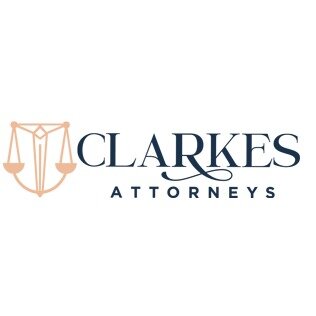Best Nursing Home Abuse Lawyers in Lilongwe
Share your needs with us, get contacted by law firms.
Free. Takes 2 min.
List of the best lawyers in Lilongwe, Malawi
About Nursing Home Abuse Law in Lilongwe, Malawi
Nursing home abuse is a serious issue in Lilongwe, Malawi, just as it is in many parts of the world. It encompasses various forms of mistreatment by caregivers or other individuals in an elder care facility, including physical, emotional, sexual, and financial abuse, as well as neglect. The government and non-governmental organizations in Malawi are increasingly focusing on elder care and protection, highlighting the need for more stringent regulations and awareness. However, challenges such as inadequate resources and lack of awareness can often hinder effective prevention and intervention.
Why You May Need a Lawyer
There are several situations where seeking legal advice regarding nursing home abuse becomes necessary:
- Suspected abuse or neglect of a loved one in a nursing home.
- Desire to ensure proper investigation and accountability for any abuse allegations.
- Need to seek compensation for injuries or trauma suffered by a nursing home resident.
- Wishing to file a complaint or case against a nursing home facility or individual caretakers.
- Advice on transferring a resident to a safer facility amid ongoing abuse concerns.
Local Laws Overview
Malawi has several laws and regulations aimed at protecting the rights and well-being of the elderly, though specific provisions related to nursing home abuse may not be as detailed. The National Policy for Older Persons and laws against assault, theft, and other criminal acts provide a framework for addressing abuse. Key aspects include:
- The Employment Act and Workers’ Compensation Act, which can be relevant in cases involving caretakers.
- General criminal laws that cover acts of violence and abuse.
- Customary laws that may influence how elder care is perceived and handled.
- Efforts by the Ministry of Gender, Children, Disability and Social Welfare to promote elder protection.
Frequently Asked Questions
What constitutes nursing home abuse?
Nursing home abuse can involve physical harm, emotional mistreatment, sexual assault, financial exploitation, or neglect of basic needs.
How can I recognize signs of abuse?
Look for unexplained injuries, sudden behavioral changes, withdrawal from social interactions, poor hygiene, signs of fear towards caregivers, and missing personal items or funds.
What should I do if I suspect abuse?
Immediately report your concerns to facility management, contact the police if needed, and seek legal advice for further action.
How can a lawyer help me in a nursing home abuse case?
A lawyer can provide advice, help gather evidence, represent you in negotiations or court, and ensure the rights of the affected individual are protected.
Are there specific legal protections for nursing home residents in Malawi?
While there are no specific laws solely for nursing home residents, general laws and elder care policies provide some protection against abuse.
Can I file a lawsuit against the nursing home?
Yes, if there is evidence supporting claims of abuse or neglect, you can pursue legal action for accountability and potential compensation.
What is the role of the government in preventing nursing home abuse?
The government, through various ministries and departments, works to uphold the rights and welfare of elderly people, although enforcement and resources are ongoing challenges.
What can I do to prevent nursing home abuse?
Stay involved in your loved one’s care, regularly visit the facility, understand their rights, and report any signs of mistreatment promptly.
Can nursing home staff be held criminally liable for abuse?
Yes, staff members found guilty of criminal acts against residents can face charges and prosecution under Malawi’s criminal law.
Is there financial compensation available for victims?
Victims may pursue compensation for medical expenses, pain and suffering through legal proceedings, but outcomes depend on each case’s specifics.
Additional Resources
For those seeking assistance or more information, consider reaching out to the following:
- Ministry of Gender, Children, Disability and Social Welfare
- Malawi Human Rights Commission
- NGOs focused on elder rights and welfare
- Local law firms specializing in elder and human rights law
Next Steps
If you believe legal assistance is necessary, consider these steps:
- Document any signs or evidence of abuse.
- Contact local authorities or elder protection services.
- Consult with a lawyer experienced in elder law and nursing home abuse cases.
- Consider reaching out to advocacy groups for support and guidance.
- Ensure that immediate safety measures are taken for the affected individual.
Lawzana helps you find the best lawyers and law firms in Lilongwe through a curated and pre-screened list of qualified legal professionals. Our platform offers rankings and detailed profiles of attorneys and law firms, allowing you to compare based on practice areas, including Nursing Home Abuse, experience, and client feedback.
Each profile includes a description of the firm's areas of practice, client reviews, team members and partners, year of establishment, spoken languages, office locations, contact information, social media presence, and any published articles or resources. Most firms on our platform speak English and are experienced in both local and international legal matters.
Get a quote from top-rated law firms in Lilongwe, Malawi — quickly, securely, and without unnecessary hassle.
Disclaimer:
The information provided on this page is for general informational purposes only and does not constitute legal advice. While we strive to ensure the accuracy and relevance of the content, legal information may change over time, and interpretations of the law can vary. You should always consult with a qualified legal professional for advice specific to your situation.
We disclaim all liability for actions taken or not taken based on the content of this page. If you believe any information is incorrect or outdated, please contact us, and we will review and update it where appropriate.








